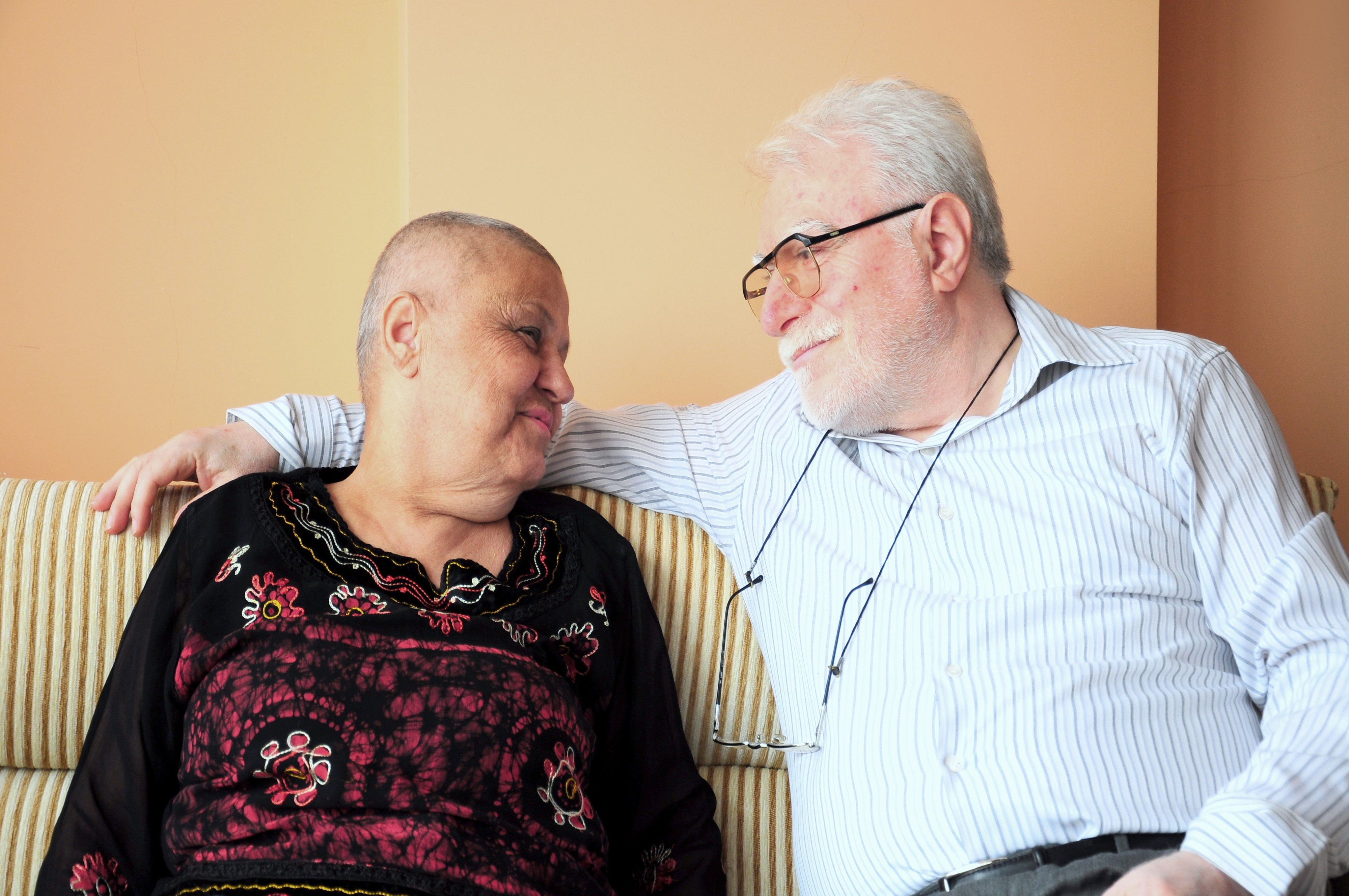

Cancer
Older adults with cancer require a well-coordinated, person-centered healthcare team. Available resources support the transformation of cancer care to meet the unique needs of older adults with cancer. |
-
Multidisciplinary Approaches to Caring for Older Adults with Cancer
"Multidisciplinary Approaches to Caring for Older Adults with Cancer," is a report from the Association of Community Cancer Centers released in partnership with GSA and the International Society of Geriatric Oncology (2019).
-
Caring for Your Older Patients with Cancer
GSA partnered with the Association of Community Cancer Centers and the International Society of Geriatric Oncology on a six-part webinar series on caring for older adults with cancer. This webinar focuses on the unique challenges in caring for geriatric cancer patients, including a review of geriatric patient epidemiology. Current NCCN and ASCO assessment guidelines will be reviewed, along with the issue of under-representation of geriatric patients in clinical trials.
-
What Every Cancer Program Team Member Should Know About Geriatric Assessment
This webinar showcases the importance of geriatric assessment in daily oncology practice and provides practical suggestions for how to integrate the assessment into practice without overburdening staff.
-
Time for a Remedy: A Focus on Pharmacy and the Older Adult
In this webinar, presenters define polypharmacy and discuss its prevalence and impact on patient outcomes as well as age-related changes that alter the pharmacology of cancer treatments and affect treatment-related effects. They review tools to screen for polypharmacy and medication adherence, plus discuss the latest research on how to effectively reduce polypharmacy. Participants will takeaway practical steps or initiatives that can be implemented at your program or practice to improve medication management.
-
A Review of Validated Tools for Geriatric Assessment and How to Use Them
Join in a practical review of validated geriatric assessment tools and learn how to incorporate them into your oncology practice. Logistics, including who can and should administer the assessment will also be included.
-
Empowering the Multi-Disciplinary Team to Support Care for Geriatric Oncology Patients
Learn about how the team at City of Hope incorporates non-physician leaders as integral members of the geriatric oncology management team.
-
Early Introduction of Palliative Care and Best Practices for End of Life
A discussion on early integration of palliative care in the geriatric oncology population. Presenters focus on communication challenges with patients and families, goal setting, shared decision-making, and quality-of-life conversations. Considerations for end of life are also shared.
-
Older Adults and Cancer: Building the Research and Clinical Care Infrastructure for an Aging Population"
As a result of improvements in treatment and supportive care, the number of older cancer survivors is increasing, including many with comorbid conditions that complicate treatment plans. Frequently, because of the lack of research into the care of older adults with cancer and comorbid conditions, clinicians find themselves unprepared to assess and manage these complex patients. Older adults are often underscreened for cancers, the conditions are understaged when they are found, and treatment is often less aggressive than in younger individuals or not provided at all. This session will examine the relationship between aging and cancer, as well as ways that cancer research, prevention, and care can be improved for older adults.
Support provided by Pfizer.
-
GSA/CDC Webinar part 1: "Health Literacy Considerations for Initiatives with Older Adults"
The first of a two-part series on cancer prevention during older adulthood, this webinar focuses on new developments in health literacy studies and implications for public health and health care programs and practices. Of particular interest are strategies for increasing the accessibility of health information and support for healthful action. This webinar builds on the U.S. National Prevention Strategy to provide an argument for attention to literacy and numeracy with illustrations related to the development of efficacious health communication strategies geared toward older adults.
Supported by the GSA Innovation Fund: The Generativity Effect.
GSA/CDC Webinar part 1: "Health Literacy Considerations for Initiatives with Older Adults"
-
GSA/CDC Webinar part 2: "Sun Protection and Sunburn Among Older U.S. Adults"
The second of a two-part series on cancer prevention during older adulthood, this webinar will describe the prevalence of sunburn and use of sun protection among U.S. adults aged 65 years and older. The webinar will also address associations between sun protection behaviors and sunburn and the public health implications for skin cancer prevention among older adults. The content of this webinar will be founded on the paper titled “Association Between Sun Protection Behaviors and Sunburn Among U.S. Older Adults,” which was authored by the speaker, Dawn M. Holman, MPH, and coworkers Helen Ding, MD, MSPH; MaryBeth Freeman, MPH, and Meredith L. Shoemaker, MPH. The paper will be published in a CDC-funded supplemental issue of The Gerontologist on Opportunities for Cancer Prevention During Older Adulthood. Preliminary analyses of the research were presented as a poster presentation at the 4th International Conference on UV and Skin Cancer Prevention in Toronto, Canada in May 2018.
Supported by the GSA Innovation Fund: The Generativity Effect.
GSA/CDC Webinar part 2: "Sun Protection and Sunburn Among Older U.S. Adults"
| Access Date | Quiz Result | Score | Actions |
|---|